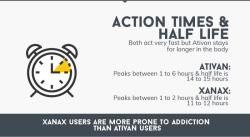Which meal should you skip for weight loss?
Skipping meals is generally not recommended as a sustainable or healthy approach to weight loss. Instead, it's typically more effective to focus on the quality and portion size of your meals, along with a balanced diet and regular physical activity. However, there are some meal timing strategies, such as intermittent fasting, that some people find helpful for weight management. Here's a brief overview:
Intermittent Fasting: Intermittent fasting involves cycling between periods of eating and fasting. There are several different methods, but two common ones are:
16/8 Method: This involves fasting for 16 hours and eating all your meals within an 8-hour window. For example, you might skip breakfast and eat between noon and 8 p.m.
5:2 Method: In this approach, you eat normally for five days a week and restrict your calorie intake to about 500-600 calories on the remaining two non-consecutive days.
Skipping Breakfast: Some people practice intermittent fasting by skipping breakfast and eating their first meal later in the day. This is often referred to as "skipping breakfast" or following a "breakfast-skipping" routine.
While intermittent fasting can be effective for some individuals, it's not suitable for everyone, and the decision to skip a meal should be made carefully and with consideration of individual needs and preferences. It's also essential to ensure that you're still meeting your nutritional requirements during eating periods.
Before making any significant changes to your meal timing or eating habits, it's advisable to consult with a healthcare professional or registered dietitian. They can help you create a personalized plan that aligns with your weight loss goals while ensuring you're getting the nutrients your body needs for overall health. Remember that successful, sustainable weight loss is typically achieved through a balanced, long-term approach to diet and lifestyle.











